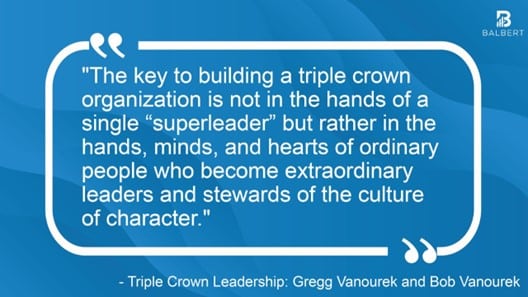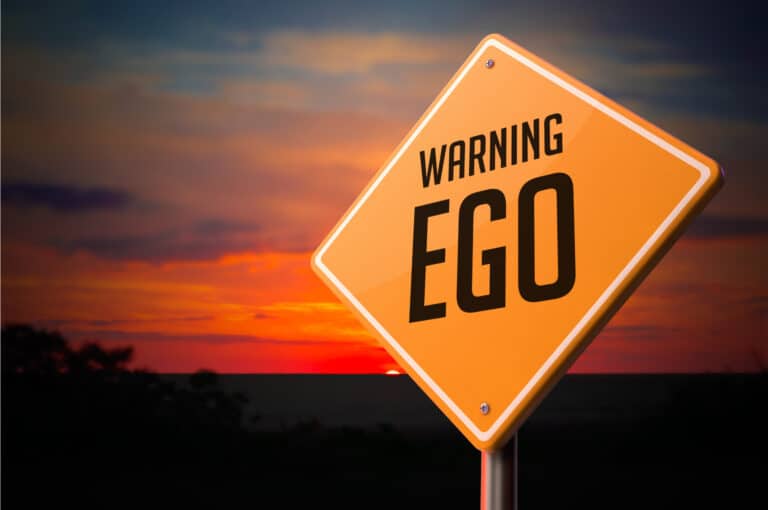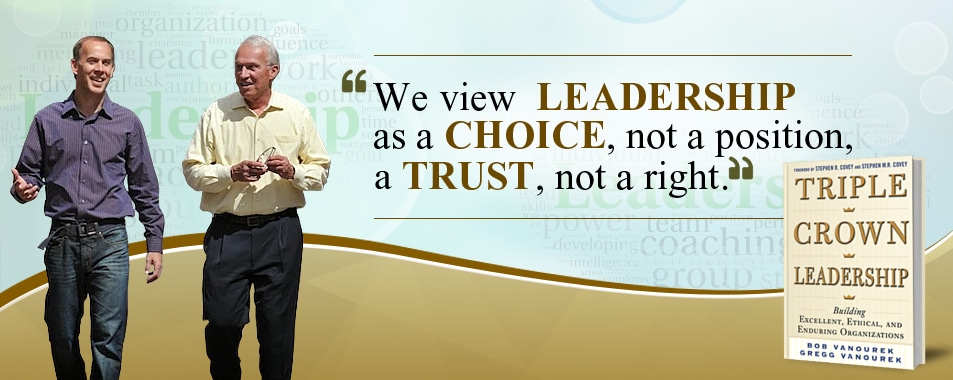Article Summary:
If you think you don’t have a problem with your ego, watch out. That’s when leaders are at the greatest risk of losing their bearings and credibility.
+++
Aristotle defined the “golden mean” as the desirable middle between the two extremes of excess and deficiency. For leaders, there’s an essential golden mean to find between the pridefulness of excessive ego and the timidity of excessive humility.
Ego
Our egos are part of our neuro-physiological systems that help protect our self-image and self-worth. The ego is the part of our conscious mind that defines our identity. Our egos want to protect us from harm.
Leaders need confidence because leadership is hard. There are difficult decisions to make, conflicting signals about what to do, and differences of opinion from colleagues, peers, and superiors. Leadership is seldom a mantle for the indecisive person who flees from the “heat of the kitchen.”
But our egos can easily lead us astray from reality by overestimating our own importance so that we think we’re better than we are. Such overestimating often occurs when we’re flattered by people seeking special treatment. Our ego can also get out of control from a string of successes. We start to believe we’re invincible.
Excessive ego is related to arrogance, an exaggerated self-opinion, conceit, hubris, self-importance, vanity, and disdain. Having an excessive ego means being prideful, boastful, pompous, and superior. It’s repellent and toxic.
“My ego is not my amigo.”
-Chuck Wachendorfer, author and executive
Pride
Pride is exaggerated self-esteem. With excessive pride, we have too high an opinion of our worth or ability.
With excessive pride comes bragging and being pretentious. It’s the ego run amuck.
“Persons in a position of power… very easily succumb to the sin of pride.”
-Kenneth A. Penman, author, Pride or Praise?
Humility
Humility is the feeling that we have no special importance that makes us better than others. Being humble often comes with being unselfish, moderate, prudent, temperate, selfless, gentle, polite, and respectful. When we’re humble, we admit when we’ve made a mistake and reveal we don’t have all the answers.
“The reality is that everybody makes mistakes. The issue isn’t whether you will make them, it’s what you will do about them. It’s whether you will choose the path of humility and courage or the path of ego and pride.”
-Stephen R. Covey, leadership author
Humble leaders express confidence in the paramount capabilities of their team.

Excessive humility is also harmful to our leadership. It reveals itself as meekness, passivity, self-abasement, or timidity. These characteristics indicate a lack of confidence or even a hidden inferiority complex.

Personal Values Exercise
Complete this exercise to identify your personal values. It will help you develop self-awareness, including clarity about what’s most important to you in life and work, and serve as a safe harbor for you to return to when things are tough.
Good Leadership Finds the Balance
In his seminal book, Good to Great, Jim Collins described “Level 5 leaders” (the best leaders he and his colleagues discovered in their research) as displaying a powerful mixture of personal humility and indomitable will.
Based on our research, we described the advanced leadership practice of flexing between steel and velvet, the hard and soft edges of leadership. In a crisis, we must be more decisive and directive, not dithering in meetings and seeking certainty and consensus. But the steel of crisis mode should be the exception, not the rule. Excessive steel often comes with excessive ego.
Most of the time, a good leader is in velvet mode, listening, asking questions, empowering others, and encouraging colleagues. An excess of velvet leads to a leader being viewed as too timid and getting trampled. Flexing between steel and velvet, depending on the people and the situation, is essential.
As we said in our book, Triple Crown Leadership: Building Excellent, Ethical, and Enduring Organizations, good leaders keep their ego in check, recognize their weaknesses, admit mistakes, and ask for help. They recognize that there’s something beyond the self, beyond the ego, that matters in life and leadership.
Summary
The biggest derailer for leaders is excessive ego. It undermines our leadership, relationships, and success in life. Good leaders find the balance—the golden mean—between the pridefulness of excessive ego and the meekness of excessive humility. They flex between steel and velvet.
Reflection Questions
- Do you struggle with excessive ego or humility?
- Whom do you trust to tell you the truth about your weaknesses and derailers?
- How might you better navigate the golden mean between excessive ego and humility?
Tools for You
- Leadership Derailers Assessment to help you identify what’s inhibiting your leadership effectiveness
- Personal Values Exercise to help you determine and clarify what’s most important to you
- Traps Test (Common Traps of Living) to help you identify what’s getting in the way of your happiness and quality of life

Leadership Derailers Assessment
Take this assessment to identify what’s inhibiting your leadership effectiveness. It will help you develop self-awareness and identify ways to improve your leadership.
Related Articles and Videos
- “The Leader’s Worst Enemy: Ego”
- “Are You Too Focused on Yourself?“
- “Your Ego Is Not Your Amigo”
- “Escaping the Trap of Our Amigo”
- “The Hidden Trap Catching Many High-Achievers: Neediness”
- Video: “Timeout with Bob and Gregg Vanourek: Ego Is Not My Amigo” (Timeout with Leaders podcast)
Postscript: Quotations on Ego, Pride, and Humility
- “Sure I am a religious man who is also passionate about conserving the environment. But I am also a CEO, with all the bad habits and attitudes that are natural to the species…. I am still naturally self-interested, overconfident, full of pride, and eager to control a meeting as any CEO in America. Every day, I struggle with my ego.” -Tom Chappell, American businessman
- “In business school, they taught us about cash flow, not about corporate politics; about return on equity, not about egos and pride.” -Mary Cunningham Agee, American business executive and author
- “All men make mistakes, but a good man yields when he knows his course is wrong, and repairs the evil. The only crime is pride.” -Sophocles, “Antigone”
- “Pride loves and is flattered by praise. Humility avoids and is embarrassed by such.” -Hilarion Dorostolski, author, Humility and Pride
- “In general, pride is at the bottom of all great mistakes.” -John Ruskin, English author
- “A proud man is always looking down on things and people; and, of course, as long as you are looking down, you cannot see something that is above you.” -C.S. Lewis, Mere Christianity
- “Through pride we are ever deceiving ourselves. But deep down below the surface of the average conscience a still, small voice says to us, something is out of tune.” -Carl Gustav Jung, Swiss psychiatrist
- “You need your ego to survive in the three-dimensional world, but you need only that part of the ego which processes information. The rest—pride, arrogance, defensiveness, fear—is worse than useless. The rest of the ego separates you from wisdom, joy, and God.”-Brian Weiss, author
- “If you are filled with pride then you’ll have no room for wisdom.” -African proverb
- “When pride comes, then comes disgrace, but with humility comes wisdom.” -Proverbs 11:2 (NIV)
- “Pride goes before destruction, a haughty spirit before a fall.” -Proverbs 16:18 (NIV)

Triple Crown Leadership Newsletter
Join our community. Sign up now and get our monthly inspirations (new articles, announcements, opportunities, resources, and more). Welcome!
+++++++++++++++++++++++
Gregg Vanourek and Bob Vanourek (son and father) are co-authors of Triple Crown Leadership: Building Excellent, Ethical, and Enduring Organizations, a winner of the International Book Awards. Check out their Leadership Derailers Assessment or get their monthly newsletter. If you found value in this, please forward it to a friend. Every little bit helps!



2 thoughts on “How Ego and Pride Derail Leaders”
Good
Thanks, Corinthian!